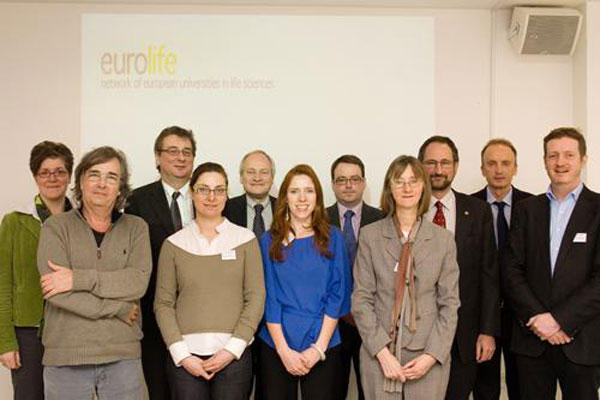The Eurolife Network of European Universities in Life Sciences announced an important new initiative, on March 1st 2010, in the fight against poverty related diseases: the Eurolife International Health Alliance (EIHA).
This brings together the expertise of seven of Europe’s leading universities in an alliance aimed at promoting improved health for the most under-privileged around the world.
Eurolife partners have officially endorsed the policy objective of the international health alliance, which will now inform the strategic objectives of the partners in this important area.
Much of the disease burden facing developing communities around the world are avoidable and the goal of EIHA is to provide a leadership role in reducing the incidence of such diseases. The seven universities of Eurolife are uniquely positioned to make a significant contribution to reducing poverty related disease, given their expertise in health science research and education, care delivery, policy research and health economics.
A key feature of EIHA policy will be in building local capacity to deal with international health issues in less developed nations, by investing in training and education and in infrastructure.
This joint commitment of Eurolife to improving international health can be a force for change at both national and European levels. “By bringing together the wealth of experience and expertise present in Eurolife, we can offer creative solutions and implement them where they are most needed”, says Professor Dermot Kelleher, Vice Provost of Medical Affairs at Trinity College Dublin, Chairperson of Eurolife.
“This is an immensely important area which has been highlighted by our respective governments where innovative solutions need to be realised. We aim to drive the debate about how we can better meet the needs of less developed communities and empower them to grasp the opportunity for improved health and living standards. Our real strength lies in our unity of purpose – thus we can present a common approach at both the National and European level. However it also gives us critical mass to interact with other key international health initiatives in the US and around the world”.
Professor Nuria Casamitjana, from the Universitat de Barcelona and the Centre for International Health Research (CRESIB, Hospital Clínic – Universitat de Barcelona) emphasised the scale of the problem and the need for cooperation to effect change.
“Without significant investment in these areas, the problems will get worse rather than better; the fight against the global burden of malaria, pneumonia, HIV/AIDs, tuberculosis and other neglected diseases requires adequate resources allocation and strengthening of health systems and policies in endemic countries; the good news is that this can be arrested and reversed but the scale of the problem requires that we pool high resources and work together”.

(L_R): Jacqueline Ton, Leiden University Medical Centre; Prof Albert Tauler, University of Barcelona; Prof Dermot Kelleher, Head of the Medical School and Eurolife Chairman, Trinity College Dublin; Anna Massaneda, University of Barcelona; Prof Eduard Klasen, Dean, Leiden University Medical Centre; Sheila Walshe, Eurolife Administrator, Trinity College Dublin; Prof David Argyle, Head of Postgraduate Research, College of Medicine and Veterinary Medicine, University of Edinburgh; Dr Oonagh Kinsman, Trinity College Dublin; Dr Miles Davies, Karolinska Institutet, Stockholm; Paul McGuire, College of Medicine and Veterinary Medicine, University of Edinburgh; Dr Ross McManus, Trinity College Dublin.
Leave a Reply